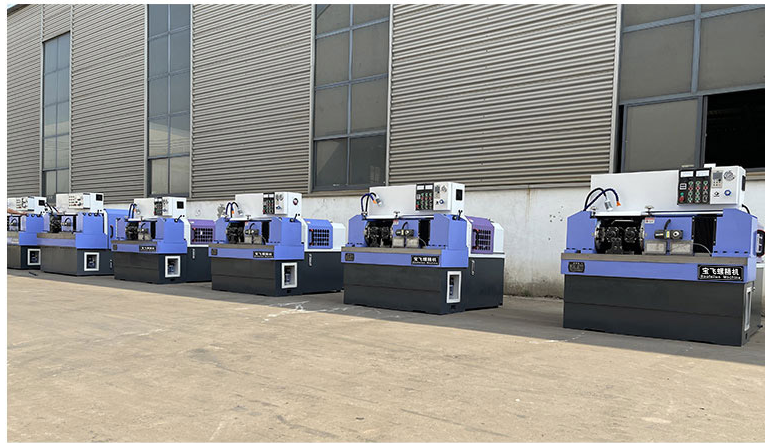
-
 Afrikaans
Afrikaans -
 Albanian
Albanian -
 Amharic
Amharic -
 Arabic
Arabic -
 Armenian
Armenian -
 Azerbaijani
Azerbaijani -
 Basque
Basque -
 Belarusian
Belarusian -
 Bengali
Bengali -
 Bosnian
Bosnian -
 Bulgarian
Bulgarian -
 Catalan
Catalan -
 Cebuano
Cebuano -
 Corsican
Corsican -
 Croatian
Croatian -
 Czech
Czech -
 Danish
Danish -
 Dutch
Dutch -
 English
English -
 Esperanto
Esperanto -
 Estonian
Estonian -
 Finnish
Finnish -
 French
French -
 Frisian
Frisian -
 Galician
Galician -
 Georgian
Georgian -
 German
German -
 Greek
Greek -
 Gujarati
Gujarati -
 Haitian Creole
Haitian Creole -
 hausa
hausa -
 hawaiian
hawaiian -
 Hebrew
Hebrew -
 Hindi
Hindi -
 Miao
Miao -
 Hungarian
Hungarian -
 Icelandic
Icelandic -
 igbo
igbo -
 Indonesian
Indonesian -
 irish
irish -
 Italian
Italian -
 Japanese
Japanese -
 Javanese
Javanese -
 Kannada
Kannada -
 kazakh
kazakh -
 Khmer
Khmer -
 Rwandese
Rwandese -
 Korean
Korean -
 Kurdish
Kurdish -
 Kyrgyz
Kyrgyz -
 Lao
Lao -
 Latin
Latin -
 Latvian
Latvian -
 Lithuanian
Lithuanian -
 Luxembourgish
Luxembourgish -
 Macedonian
Macedonian -
 Malgashi
Malgashi -
 Malay
Malay -
 Malayalam
Malayalam -
 Maltese
Maltese -
 Maori
Maori -
 Marathi
Marathi -
 Mongolian
Mongolian -
 Myanmar
Myanmar -
 Nepali
Nepali -
 Norwegian
Norwegian -
 Norwegian
Norwegian -
 Occitan
Occitan -
 Pashto
Pashto -
 Persian
Persian -
 Polish
Polish -
 Portuguese
Portuguese -
 Punjabi
Punjabi -
 Romanian
Romanian -
 Russian
Russian -
 Samoan
Samoan -
 Scottish Gaelic
Scottish Gaelic -
 Serbian
Serbian -
 Sesotho
Sesotho -
 Shona
Shona -
 Sindhi
Sindhi -
 Sinhala
Sinhala -
 Slovak
Slovak -
 Slovenian
Slovenian -
 Somali
Somali -
 Spanish
Spanish -
 Sundanese
Sundanese -
 Swahili
Swahili -
 Swedish
Swedish -
 Tagalog
Tagalog -
 Tajik
Tajik -
 Tamil
Tamil -
 Tatar
Tatar -
 Telugu
Telugu -
 Thai
Thai -
 Turkish
Turkish -
 Turkmen
Turkmen -
 Ukrainian
Ukrainian -
 Urdu
Urdu -
 Uighur
Uighur -
 Uzbek
Uzbek -
 Vietnamese
Vietnamese -
 Welsh
Welsh -
 Bantu
Bantu -
 Yiddish
Yiddish -
 Yoruba
Yoruba -
 Zulu
Zulu
Custom Thread Rolling Machine in Action Demonstration for Precision Manufacturing Processes
The Intricacies of Custom Thread Rolling Machines A Comprehensive Overview
In the realm of manufacturing and machining, precision is paramount. Among the myriad tools and techniques employed to achieve exact specifications, custom thread rolling machines stand out. These machines are engineered to create intricate threaded components efficiently, offering significant advantages over traditional machining methods such as cutting and grinding. Understanding how these machines operate and their applications can illuminate their importance in modern manufacturing.
What is Thread Rolling?
Thread rolling is a cold-forming process that produces threads on cylindrical workpieces. This technique involves deforming the material using rotating dies, which apply immense pressure, thus shaping the metal without taking away any material. The result is a superior finish and enhanced mechanical properties compared to threads produced by cutting methods, primarily due to the work hardening of the material.
The Mechanics of Custom Thread Rolling Machines
Custom thread rolling machines are specifically tailored to meet the unique requirements of different industries. They can vary widely in size and complexity, from compact desktop models to large industrial machines. The core components of these machines include
1. Rolling Dies These are intricately designed to create specific thread profiles. Custom dies are made according to the thread specifications required by the client or project.
2. Workholding Systems A robust system is essential for securing the workpiece in place during the rolling process. This can vary based on the size and shape of the components.
3. Drive Systems Precision in speed control allows for optimal pressure and timing during the rolling process, ensuring that threads are formed consistently.
4. Control Systems Many modern machines come equipped with advanced control systems that enable operators to set parameters, monitor the rolling process, and adjust conditions in real time for consistent quality.
Applications Across Industries
Custom thread rolling machines find their applications in numerous industries, including automotive, aerospace, construction, and electronics. For instance
custom thread rolling machine video

- Automotive Industry High-strength bolts and fasteners used in vehicles require precise threading to endure stress and maintain safety
. Custom thread rolling machines can produce these components quickly and accurately, allowing manufacturers to meet high-volume demands.- Aerospace Sector The aerospace industry often requires lightweight yet robust components. Custom thread rolling enables the production of high-tolerance threaded parts that are critical for the integrity of aircraft structures.
- Construction and Building In construction, applications such as anchoring and fastening systems benefit from the reliability and precision offered by thread rolling. The machines deliver threads that can withstand significant loads.
- Electronics Smaller components produced for electronic devices also require precise threading for connectors and housings, further showcasing the versatility of thread rolling.
Benefits of Custom Thread Rolling Machines
Employing custom thread rolling machines presents several benefits, including
- Increased Efficiency These machines can produce threads at a faster rate than traditional cutting processes, significantly reducing manufacturing time.
- Cost-Effectiveness Although the initial setup for custom machines may be higher, the long-term savings gained through reduced material waste and increased production rates can lead to lower overall costs.
- Improved Material Properties As mentioned, thread rolling enhances the mechanical properties of materials, resulting in stronger and more durable components.
- Design Flexibility Custom machines can be adapted to accommodate various thread sizes and types, meaning companies can produce a wider array of products without investing in multiple different systems.
Conclusion
As industries continue to evolve towards automation and precision, custom thread rolling machines play an indispensable role in shaping the future of manufacturing. Their ability to produce high-quality threaded components efficiently makes them vital assets in various sectors. As technology advances, we can expect ongoing innovations in thread rolling processes, further enhancing the capabilities and applications of these remarkable machines.
